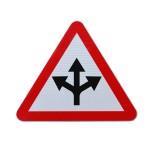Generator Installation Safety Checklist
 Unless you are a certified technician or electrician qualified to install a used generator you are best advised to hire a professional to do it for you. This is because there are standard precautions that need to be followed to make sure that the unit is installed securely and safety.
Unless you are a certified technician or electrician qualified to install a used generator you are best advised to hire a professional to do it for you. This is because there are standard precautions that need to be followed to make sure that the unit is installed securely and safety.
Here is a checklist of things to keep in mind when it comes to electrical generator safety:
- The voltage ratings of your tools and appliance must match the voltage ratings of the genset or short-circuiting, damage and explosions can occur.
- When unpacking the unit from shipping, conduct an inspection to make sure that nothing was damaged in transit
- A generator should always be placed a little bit above ground level to avoid the wires touching water and causing electrical shocks
- The installing technician should install grounding lugs below the frame and metallic conducting parts to avoid the risk of electrocution
- Batteries must be charged completely before operating the unit or it can fail and feed electricity back into the system
- All wires must be connected and locked off to prevent electricity feeding back into the unit and causing fatal electrocution to the operator
- Wiring and code sets must be set at the recommended capacity
- Adequate ventilation must be provided during installation and operation of the generator as they contain poisonous gases that can also be fatal if inhaled
- Combustible materials must be kept away from the area near the machine
- To avoid electrocution all voltage supplies should be turned off at the source while installing or servicing the generator
- Smoking and using lighters and matches can result in a fatality in the vicinity
- Fuel and oil spills in the vicinity can also pose a risk of explosion
- A generator should never be opened or dismantled while it is in operation as the parts inside will be very hot. Let the machine cool down before you handle these parts to avoid burns.
Finally practice a little accident prevention by having your unit serviced and cleaned regularly. The equipment must be regularly inspected by a license service technician at least six months a year so malfunctions do not cause accidents and fires.

